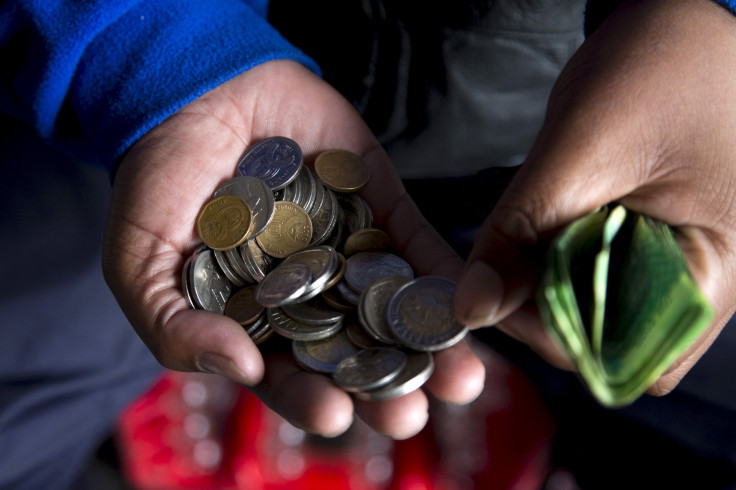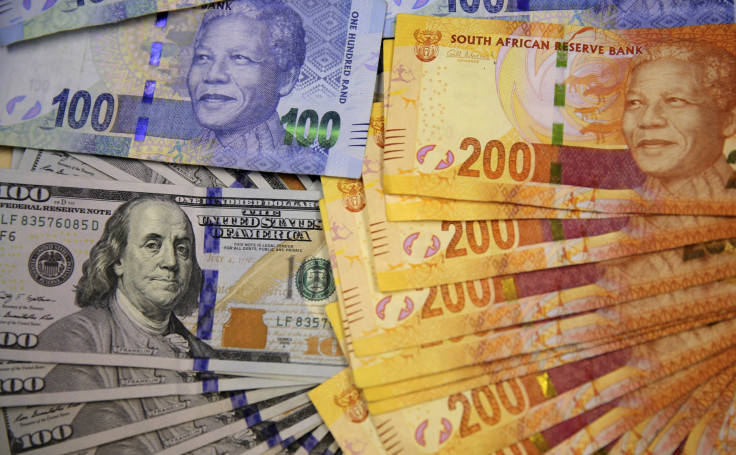Amid China's Slowdown, South Africa's Rand Recovers From Record Lows Against US Dollar

South Africa’s commodity-linked currency recovered from an all-time low against the U.S. dollar Tuesday despite a slump in China’s imports and persistent fears over a more severe slowdown in the world’s second-largest economy. The South African rand strengthened for the first time in four days, rising 1.3 percent to 13.7885 per dollar as of 4:30 p.m. in Johannesburg after plummeting to more than 14 against the U.S. currency, according to Bloomberg.
However, yields on benchmark government rand bonds dropped 11 basis points from an 18-month high to 8.5 percent Tuesday, and the rand’s gains were capped amid a global sell-off of African currencies, falling commodity prices, Chinese market uncertainty and the looming prospect of a U.S. Federal Reserve interest rate hike.
The world's most influential central bank must decide whether to raise interest rates at its Sept. 16-17 meeting for the first time in nearly a decade, which has investors around the world on edge. A rate hike by the Federal Reserve would likely lead to a stronger U.S. dollar, which could threaten emerging markets such as South Africa, according to Quartz.

The South African currency, which is linked to the value of the country’s commodities, has dropped about 12 percent against the U.S. dollar this year. Lower import demand in China has already dealt a blow to countries such as South Africa, where producers of gold, wine and other goods depend on their Chinese trading partners.
"We are surprised that the market has not focused on the much-worse-than-expected 13.8 percent year-on-year decline in imports," John Cairns, a currency strategist at Rand Merchant Bank, told Reuters on Tuesday.
Dwindling consumer confidence could also bring Africa’s second-largest economy to a grinding halt as South Africa grapples with lower Chinese imports, slumping commodity prices and sluggish economic growth. A recent report by the South African Institute of Race Relations found that growing financial pressure on South African consumers could further depress the country’s bleak economic outlook.
“While secured-lending levels have flattened out over recent years, unsecured-credit levels have more than trebled. In addition, previous IRR reports on the middle classes show that the black middle class is particularly exposed," Gerbrandt van Heerden, an analyst at the liberal policy think tank, told News24 in Johannesburg on Tuesday. "With interest rates likely to rise in the medium term in response to foreign rate hikes, the South African consumer will come under growing economic pressure, and black consumers will be hit the hardest.”
© Copyright IBTimes 2024. All rights reserved.





















